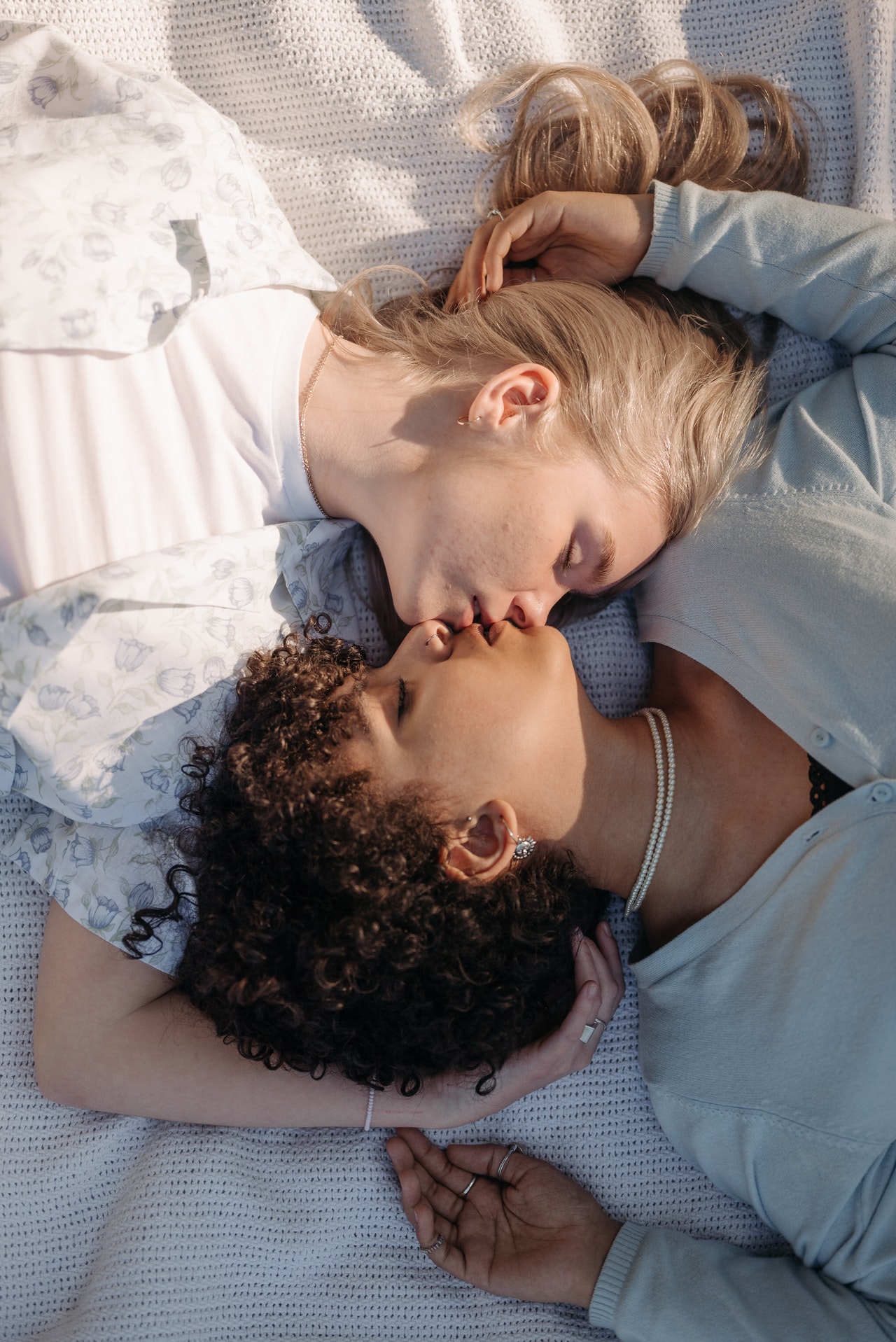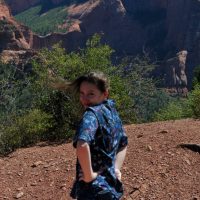America has decided to make a meal out of its queer youth again.
It’s chewing up trans kids and spitting them back out—this time in the heart of small-town, rural United States of America.
There are 14 states that ban trans athletes from participating in sports that align with their gender identity. Most, if not all, are rural states: Montana, Idaho, Utah, Arizona, South Dakota, Iowa, West Virginia, Tennessee, Oklahoma, Arkansas, Alabama, Mississippi, Florida, and Texas.
Texas Governor Greg Abbott recently penned a letter stating that gender-affirming medical care to trans children “constitutes” child abuse. And then he penned another, requiring teachers, doctors, and anyone in between to report parents who provide their children such care. Texas is one of four states (most, if not all, are again rural) that still have “no promo homo” legislation. Teachers can’t discuss being queer in classrooms.
The effect is incredibly isolating for LGBTQ+ youth in these areas, where it is incredibly hard to be “out and proud” already. Gender-affirming health care and socialization are lifesaving—trans kids forced to stay in the closet, stopped from transitioning, are much more likely to attempt suicide.
Almost by design, it’s hard to picture a rural queer. In the small towns that litter these states, homophobia and transphobia are normalized. There’s the constant legal battle being waged against gay and trans youth. There’s a noticeable lack of resources in rural areas for the queer community. It’s no surprise then that most queer kids flee toward urban environments. And if they don’t? Matthew Shepard comes to mind—murdered in one of the most horrific hate crimes the nation has ever seen. Brandon Teena, again, murdered in 1993.
But they do exist; there are roughly three million LGBTQ+ people in the rural heart of our nation. And some of them aren’t going anywhere—not everyone can afford to, nor wants to, flee to cities to find community.
Now, everyone can lend a hand by donating to various organizations. There’s ACLU Texas, Equality Texas, and the Transgender Education Network of Texas to name a few organizations that you can donate to, where help is most acutely needed.
Trans rural inhabitants are more likely to suffer in poverty, and if they’re a trans person of color, that likelihood increases even further. And most rural towns don’t have gender-affirming health care, LGBTQ+ resource centers, or even just the plain funding to help the queer communities as a city could.
But it takes more than just lending a few of those necessary dollars to change things. It requires a new diet. People must start reading about, listening to, and thoughtfully engaging with rural queer stories—gay, trans, and anything in between. As America begins its next round of devouring queer communities whole, acquiring a taste for gay cowboy poetry and trans small-town stories is essential.
There’s the practical side of this: When more people consume rural queer stories, the broader their outreach. “No promo homo” legislation might preside over the classroom as gospel, but libraries, the internet, and other community centers can fill in the vital gaps in people’s LGBTQ+ education. Having stories that resemble the communities’ rural queer youth and adults alike makes such education more accessible. Trans and gay people in such communities feel less lonely. More seen.
This idea is well articulated in Bruce Snider’s “Where Are All the Rural Gay Poets?” Discovering queer poetry, specifically Frank O’Hara, in his childhood, “was like overhearing one side of a conversation that somehow, without even knowing, I’d always wanted to join.” But it didn’t resemble a life he was familiar with: small-town Indiana. And what is a gay or trans kid from the middle of nowhere supposed to do with stories that don’t resemble the life they know?
But outside of the practical, it’s just a good exercise. Practice understanding different identities outside of the personal bubbles we live in every day. Rural America, as told by popular culture, will have many, even the best-intentioned, believing it is a cis, straight, white, conservative place. Hostile to the marginalized. Ignorant. But that neglects the real diversity that exists in the oft-neglected small town, farming, and countryside communities.
Breaking out of stereotypes allows us to find a world of stories from the queer perspective. Breaking out even further lets us find a rural queer narrative that is not necessarily white, not necessarily cis, and not necessarily conventional at all.
Luckily, there are quite a few beautiful places to start.
The largest cultural phenomenon surrounding gay rural cinema just might be “Brokeback Mountain,” the movie based on Annie Proulx’s short story of the same name. Jake Gyllenhaal and Heath Ledger both give heartbreaking and beautiful performances. “Brokeback” was revolutionary and unconventional. The gay cowboy, unheard of in the communities they truly do live in. At the time of its release, it was controversial—lauded by critics, hated by conservative news commentators. It lost Best Picture in 2005. Now, it’s preserved in the National Film Registry by the Library of Congress.
Such films feel commonplace now. “Call Me By Your Name,” “Moonlight,” and other LGBTQ+ films now enjoy the limelight, unimaginable to the community just 10 years prior. It’s worth the effort to return to where it all began, by rewatching the film and looking onward. “Brokeback” is the subject of countless think pieces, reviews, and even books about its cultural and personal impact.
See also: “Maurice” (1987), “My Own Private Idaho” (1991), or “God’s Own Country” (2017).
Or there’s Alison Bechdel’s Fun Home. My first encounter with the rural queer. I read it for the first time when I was first coming to terms with my bisexuality. I’ve read it three times since. Set in rural Pennsylvania, Bechdel’s graphic memoir is poignant and freeing. It’s thick with literary references, most I didn’t get at 14, and some I might never. But I didn’t need to have read Proust to be compelled to the new world of sexuality that Fun Home presented to me.
And I didn’t need to have grown up in the middle of Pennsylvania to understand the profound loneliness that being queer in a small community comes with. I made the leap, over location, time, and worldview, into the childhood and college years of Bechdel.
Now it’s a musical. A Tony award-winning, breathtaking musical. It won Best Musical and for good reason. Listening to the soundtrack reveals a lovely reflection on interpersonal relationships, sexuality, and exploration.
In a similar vein, there’s Ocean Vuong’s On Earth We’re Briefly Gorgeous, a novel-letter written by Little Dog, the son of a Vietnamese immigrant, to his mother. It’s loosely based on Vuong’s own experiences growing up and is incredible writing. Working tobacco fields, facing drug addiction, and loving another boy, Trevor, are all experiences that link and loop together in the narrative.
See also: If I Was Your Girl by Meredith Russo, The Miseducation of Cameron Post by Emily M. Danforth, A History of My Brief Body by Billy-Ray Belcourt.
Turn also to the world of country music. “Lavender Country,” the self-titled debut by Lavender Country, released in 1973, is a good place to start. At the time, it was a self-distributed passion project. It was revived and reissued in 2014. It spoke to the struggles of rural queer people of the time, with songs that ended up being timeless.
In 2022, we can turn and listen to the works of Trixie Mattel, Little Nas X, Orville Peck, Amythyst Kiah, Brandi Carlile, and on and on. A whole universe of genre-bending queer music is growing like ivy over the long-hated country and folk music. Artists who are singing to the generations of queer kids and adults who may never get, nor want, to leave rural America but live in it all the same.
Start considering the rural LGBTQ+ perspective—because it’s out there. And no matter how much legislation and harm that comes to trans and gay youth and adults in these states, they’ll still live out there, all the same, their voices refusing to get choked out.
It’s good practice to show gay and trans kids they’re not alone, queer adults that their lives are not so isolated, that to be LGBTQ+ and rural is more than compatible. And good practice for yourself too as America makes a meal out of the queer community. Don’t stay within your own bubble!
It’s comfortable, and it’s tempting, but it leaves a bad aftertaste in your mouth when all is said and done. One that mouth wash can’t fix.
~









Read 0 comments and reply